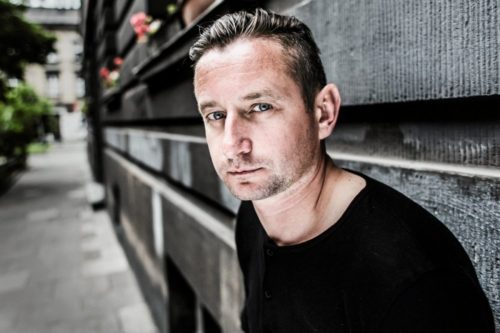Thursday
The website Literary Hub has been running articles on Ukrainian poets, including this one on Serhiy Zhadan. Zhadan wrote the following lines when the Russians were annexing Crimea in 2014:
How did we build our houses?
When you’re standing under winter skies,
and the heavens turn and sail away,
you know you’ve got to live somewhere
you aren’t afraid to die.
Translator and scholar Amelia Glaser notes that Zhadan’s subject was the Crimean Tartars, whom Stalin deported en masse from Crimea in 1944 and who were displaced again by Putin. The passage is only too relevant to today as the Russians begin shelling Ukrainian cities, including Zhadan’s home city of Kharkiv. Glaser reports that the writer has been helping coordinate volunteer opposition and relief efforts.
Glaser includes some other Zhadan poems in her article, written in the fall and winter of 2021. Although she says that they are “more meditative” than Zhadan’s war poems, she observes that, in all of his work, “Zhadan’s poetic voice seeks truths about the human condition.” In his gorgeous lyric “A brief history of snow,” we encounter a haunting melancholy that must owe something to Ukraine’s dark history when first Stalin and then Hitler and now potentially Putin committed mass slaughter. And yet, the poet also tells us that those who defended the city will “come out to its walls/ and call after the bad weather/ that fell on the shoulders of their dead” And that “our singing will follow you. “When the poet writes that “we plant the seeds of a sigh/ in the black soil of breath,” we sense that tyranny will not get the last word. Follow the deep tracks of hunters, he tells us, and we will find where fear meets courage.
A brief history of snow, as told by eyewitnesses mimicked by a chorus collected from passers-by: give me a chronology of the snowfall, let me hold the thread that leads to the borders of winter, to a blizzard’s blue outskirts. A brief description of what fills the space between eastern dunes and western lowlands, a brief stop in winter’s long expedition. All those who defended this city will come out to its walls and call after the bad weather that fell on the shoulders of their dead: You go first, snow, go, once you’ve stepped forward, we’ll follow, as you go out to the field our singing will follow you. After all, we’re the ones singing on a quiet night when it’s silent downtown, we plant the seeds of a sigh in the black soil of breath. Snow, fall on our childhood— the safe haven of loyalty and noise, here we were friendly with the dark side of language, with the deepening tenderness, here we learned to collect voices like coins, you go first, snow, go first, fill up the deep sadness of the well that opened for you, like a metaphor. Past the last gasps of childhood behind the station wall and the amateur blueprint of a Sunday school, past the houses on a hill, where boys’ fragile voices break at the stem, go ahead of us, snow, mark us present in the book of comings and goings, in the nighttime registry of love, you go first, don’t be afraid of getting lost in the field because we know you won’t get beyond the boundaries of sound, beyond the boundaries of our names, the world is like a dictionary, it preserves its own depths, shares it with school teachers and their students. Your night is like prison bread, hidden in a pocket, like the oblique silhouette of someone walking, the wax that’s shaped into the moon, your path is a reinvented chronicle of cities, the slope leading to the square, the deep tracks left by hunters, where fear meets courage. --Trans. from the Ukrainian by Amelia Glaser and Yuliya Ilchuk


